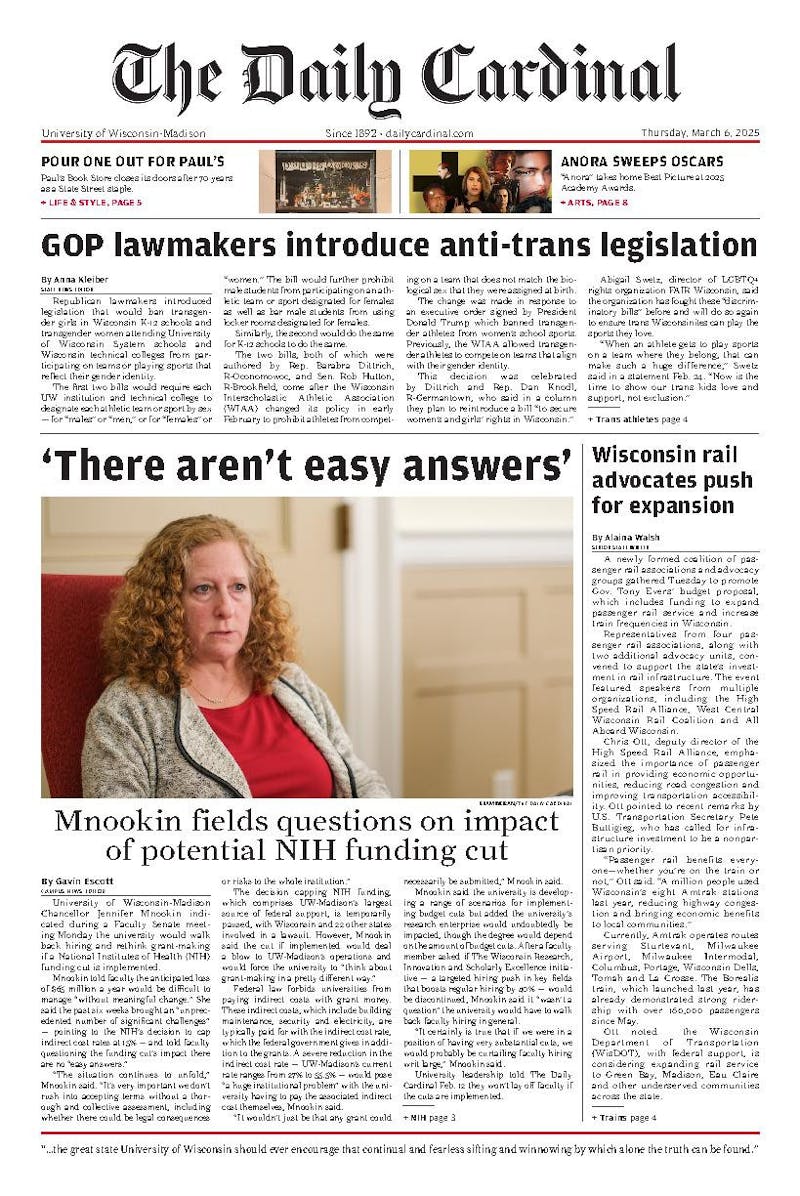The Associated Students of Madison passed legislation Wednesday that has been in the works for a decade.
Medical amnesty policies aim to shield individuals from penalization for seeking medical help while under the influence of alcohol or drugs. Currently 10 Big Ten institutions have medical amnesty policies.
In the past the UW-Madison’s Responsible Actions Guidelines provided amnesty only for sexual assault victims/survivors and the caller. The exclusion of individuals in need of medical attention from amnesty discourages students from seeking help due to the possibility of getting their friends or themselves in trouble, according to ASM Chair Laura Downer.
The Amnesty Through Responsible Action program aims to extend the guidelines set forth by the university to offer sanctions for students in need of medical attention, as well as their companions.
“High-risk behaviors such as binge drinking and abuse of alcohol and other drugs ... is an environmental reality within UW-Madison,” the legislation said. “Fear of retribution, peer pressure, and impaired judgement under the influence of alcohol and other drugs create a perceived barrier to choosing to help a student in need.”
The amnesty program advocated for by ASM aims to create a safer environment for students by offering amnesty for both the student in need of medical attention and the caller.
In order for the students to receive amnesty they must fully cooperate with university personnel.
“Out of a lot of the things that ASM does this one is probably one of the most dramatic ways in which we are helping our students.” ASM Rep. Yogev Ben-Yitschak said.
The Amnesty Through Responsible Action program passed unanimously by ASM calls the university to implement the program at the beginning of summer 2020. ASM envisions the program becoming a state level law protecting students seeking help in times of need.
“In the coming weeks and months we will be working very closely with the city of Madison and state of Wisconsin to elevate it to a city-wide, statewide, UW System wide policy.” Downer said.
Reporting was contributed by Dana Brandt.






